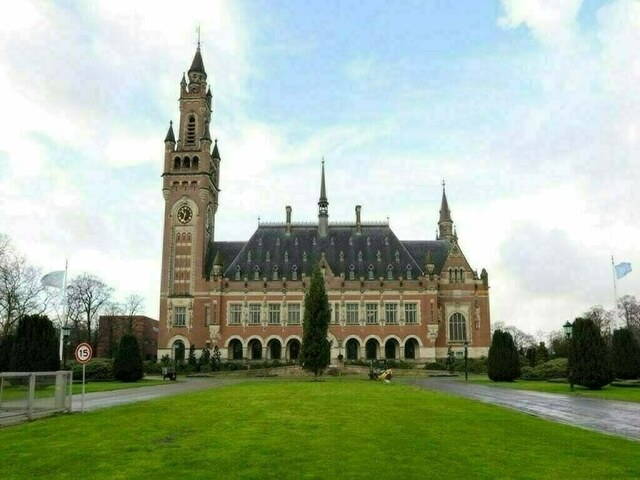Wednesday, Jul 23, 2025 | 27 Muharram 1447
Wednesday, Jul 23, 2025 | 27 Muharram 1447

THE HAGUE: The top United Nations court will on Wednesday hand down a landmark global legal blueprint for tackling climate change that also sets out top polluters’ responsibilities towards the countries suffering most.
The International Court of Justice (ICJ) has been tasked with crafting a so-called advisory opinion on countries’ obligations to prevent climate change and the consequences for polluters whose emissions have harmed the planet.
Experts say this is the most significant in a string of recent rulings on climate change in international law, with major potential repercussions for states and firms around the world.
Climate-vulnerable countries and campaign groups hope it will have far-reaching legal consequences in the fight against climate change, unifying existing law, shaping national and international legislation, and impacting current court cases.
“It will be the compass the world needs to course correct,” said Vishal Prasad, director of the Pacific Islands Students Fighting Climate Change.
“It will give new strength to climate litigation, inspire more ambitious national policies and guide states toward decisions that uphold their legal duties to protect both people and planet,” said Prasad.
But some critics argue the ruling will be toothless, as ICJ advisory opinions are not binding and major polluters can choose simply to ignore it.
The UN, pushed by tiny island state Vanuatu, asked the court to answer two questions.
First, what obligations do states have under international law to protect the Earth’s climate from polluting greenhouse gas emissions?
Second, what are the legal consequences for states which “by their acts and omissions have caused significant harm to the climate system and other parts of the environment?”
The second question was explicitly linked to the damage that climate change is causing to small, more vulnerable, countries and their populations.
This applies to countries facing increasingly damaging weather disasters and especially to island nations under threat from rising sea levels like those in the Pacific Ocean.
In what was termed a “David versus Goliath” battle, advanced economies and developing nations clashed at the ICJ during December hearings on the case. The iconic Peace Palace in the Hague, the seat of the ICJ, played host to more than 100 oral submissions — the largest number ever, many from tiny states making their first appearance.
“This may well be the most consequential case in the history of humanity,” said Vanuatu’s representative Ralph Regenvanu, opening the two weeks of hearings.
“The outcome of these proceedings will reverberate across generations, determining the fate of nations like mine and the future of our planet,” he told the 15-judge panel.